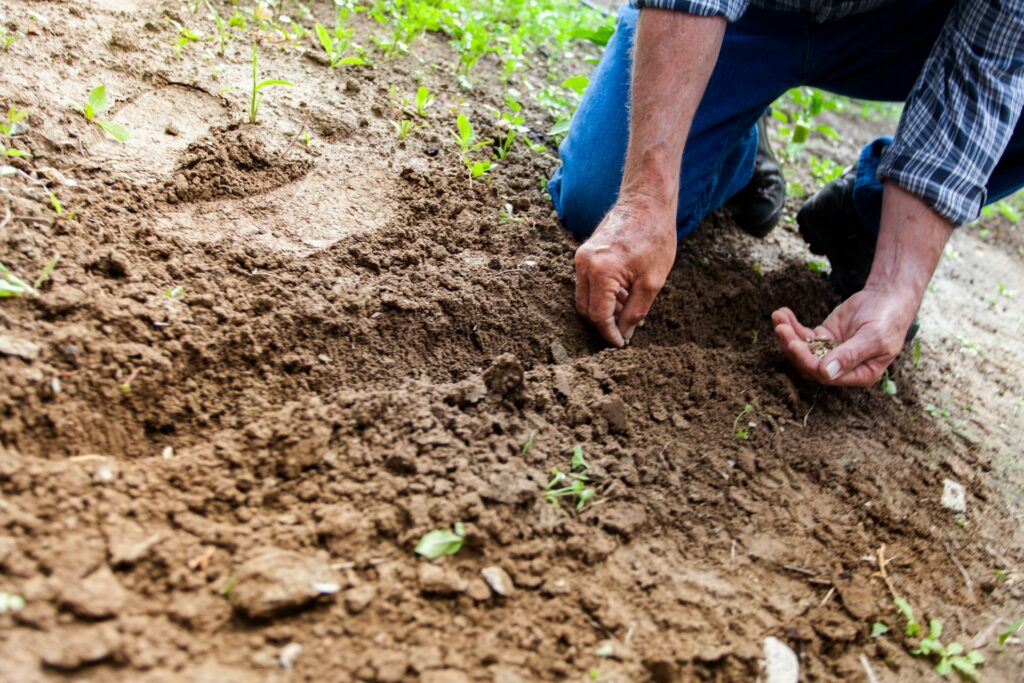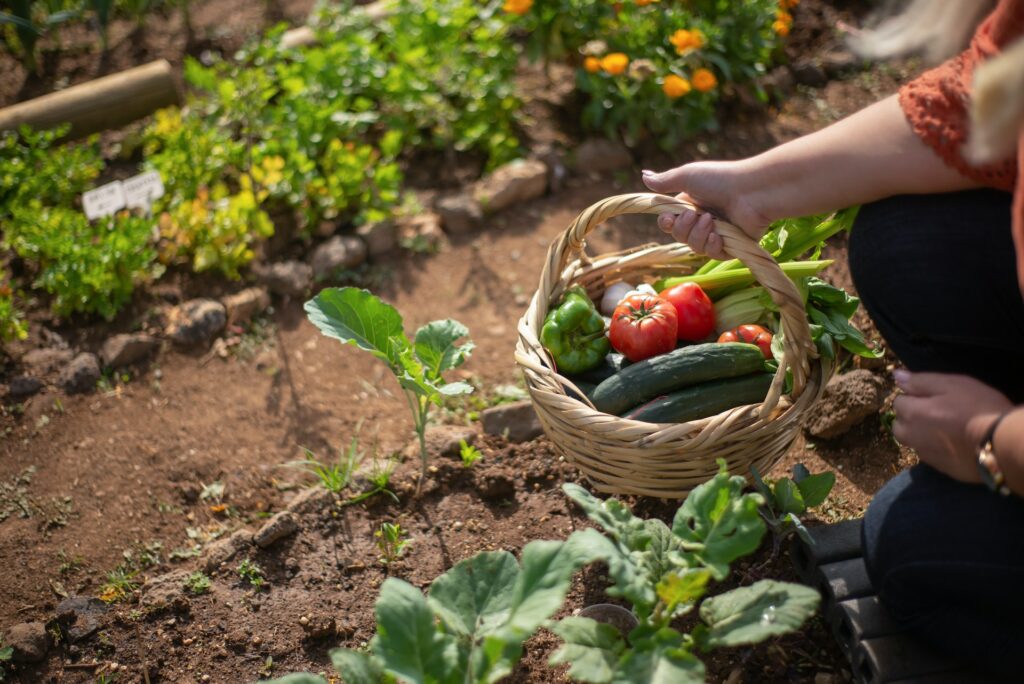War. Famine. Food and water shortages. Supply breakdowns. The list goes on and on as the mainstream news and social media serve the masses a steady diet of fear and impending doom. However, every dark cloud has a silver lining or two as well. After the Covid lockdowns, there seem to be at least two good things that came out of those crazy times.
First, most sane, and situationally aware people began to realize how fragile the just-in-time food delivery system was. Second, people took matters into their own hands and started planning/planting their own victory gardens. Many new and seasoned homesteaders, preppers, and survivalists alike saw the writing on the wall during these dark days and they either began growing their own crops or beefed up their current garden.
THE CHALLENGES:
One of the most satisfying feelings in prepping is picking your own freshly grown fruits and vegetables. To get to that point, we all had to go through the education process. Everything from questioning whether you would plant in containers and raised beds to using grow bags for some crops and planting directly in the ground for others was part of the learning curve. There were other issues to consider as well such as how many rain barrels would be needed if the grid went down and how to maximize that collected rainwater through a drip irrigation system. You may have even calculated, or at least considered, how high you wanted the chicken wire fence to go to keep the four-legged creatures out.

Perhaps there was planning for the logistical placement of the crops in your field, yard, sunroom, or even your balcony to ensure your plants received the right amount of sunlight. Let us not forget the actual harvesting. You needed to decide if you would pick your crops and can them for long-term storage, or just freeze everything and vacuum seal it for a rainy day. In other words, gardening is not as easy as just throwing some seeds in the dirt. There is a tremendous amount of planning that goes into reaping what you have sown.
Then there are the bugs…
GARDEN OPSEC & ENTOMOLOGY:
Entomology is the study of insects. Most hardcore preppers might be thinking right now, “I’ve got way too much to do than studying up on bugs as a tertiary prepping skill”. And that’s where you might just regret that decision. At the end of the day when you drift off to sleep knowing you have a tight OPSEC (Operations Security) plan for your home, there is a war being waged while you slumber. If you are thinking about planting or are already growing your own garden, it can quickly be ravaged by an army of veracious insects if you have not planned properly.

These six + legged miniature demon seeds can wreak havoc on even the best laid out garden plan if you do not include a proper attack strategy. This attack strategy is Garden OPSEC. This is basically learning how to build your own miniature private army of ruthless and hungry combatants! If you can slowly learn this tertiary prepper skill, you will become more of an asset to your prepper group, tribe, or family, and you will not have to share your bumper crop with a tiny and destructive enemy.
SCENARIO:
After watching the news all year of potential water and food shortages, you decide it would be best to double the size of your garden as a preventative measure for next year. The fall is coming, and things are not looking great economically or politically. You take the initiative and formulate a solid plan for spring planting next year by using some online software. After testing the PH levels of your soil, you decide to grow four new crops. You have the space, and you purchase all the heirloom seeds necessary to turn your dream into a reality. But there is one tiny thing you failed to prepare for and that is the flying, crawling, hopping, buzzing army of insects that want to devour that food just as much as you. Once you plant those crops, all bets are off because be rest assured, you will have some uninvited guests come to dine indefinitely if you do not plan accordingly.
NEXT STEPS:

The scenario above is very common with gardeners who are just starting out and even seasoned veterans. But there is hope! Here are some suggestions to help you stay ahead of the curve.
- Begin to research online the different types of insects that will feast on your current crops / future crop expansions.
- Books such as, “The Vegetable Garden Pest Handbook” by Susan Mulvihill and “Rodale’s Color Handbook of Garden Insects” by Anna Carr are fantastic resources to study and have on hand, especially if there is ever an EMP, TEOTWAWKI, or grid down situation.
- Make a spreadsheet such as the example below of your current planting preparations incorporating beneficial insects and plants.

- Start building your army! Arbico-organics sells a myriad of beneficial insects and pest control supplies that can meet most budgets.
- Figure out your Alternate and Contingency plan (P.A.C.E. plan in essence). If the grid is down and you must plant crops but cannot purchase any beneficial insects or pest control, you are going to have to do things the old-fashioned way and entice beneficial insects into your garden by building “bug hotels”. You can also try to map out the best plants that will invite these predacious warriors to assist you even if it is a WROL out there. (Ex. Fern–leaf yarrow attracts lacewings, hoverflies, and ladybugs.)
- Deepen your attack strategy with natural controls such as nematodes, diatomaceous earth, sprays, and cover hoops.
- Figure out a way to “relocate” wasps and hornets without killing them. A garden hose will aggravate them if they are setting up shop under your porch roof, but they will get the hint and move on to somewhere else. You don’t want to kill them! As painful as they can be, they are also one of the best exterminators you can have on your property.
- Try not to kill any spiders. (Did I just write that???) If you see spiders in your garden, it means there is food for them to eat. Garden spiders (yellow and black) are the best in a garden and one egg sac can have as many as 1,000 baby spiderlings ready to hatch in the spring.
- Try to avoid harmful chemicals and sprays as they can kill off beneficial insects as well.
- For the sake of your sanity, factor in a percentage of crops lost due to insect damage. For example, if you plan on planting “X” amount of corn, have a mental number in your head or on the spreadsheet above as to what you could potentially lose due to the corn earworm. (You will lose probably a lot of the tips, but the corn is still good and edible, but it will be a compounded loss nonetheless.)

CONCLUSION:
In all seriousness, Garden OPSEC is a Tertiary Prepper Skill you will want to incorporate into your prepper plan immediately. With the current food supply shortages and fall quickly approaching, having a solid game plan before spring is crucial as most of us can still purchase products without a tremendous number of issues. That can all easily and rapidly change by late fall and/or winter so try to get ahead of the curve now if you can.
Stay strong, keep learning new tertiary prepper skills, and have fun building your bug army !
source : Guest Contributor



